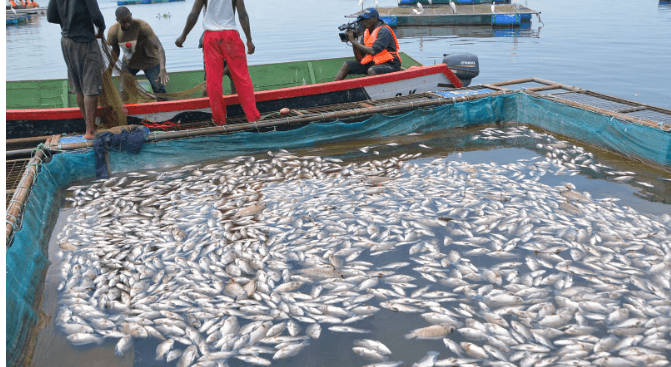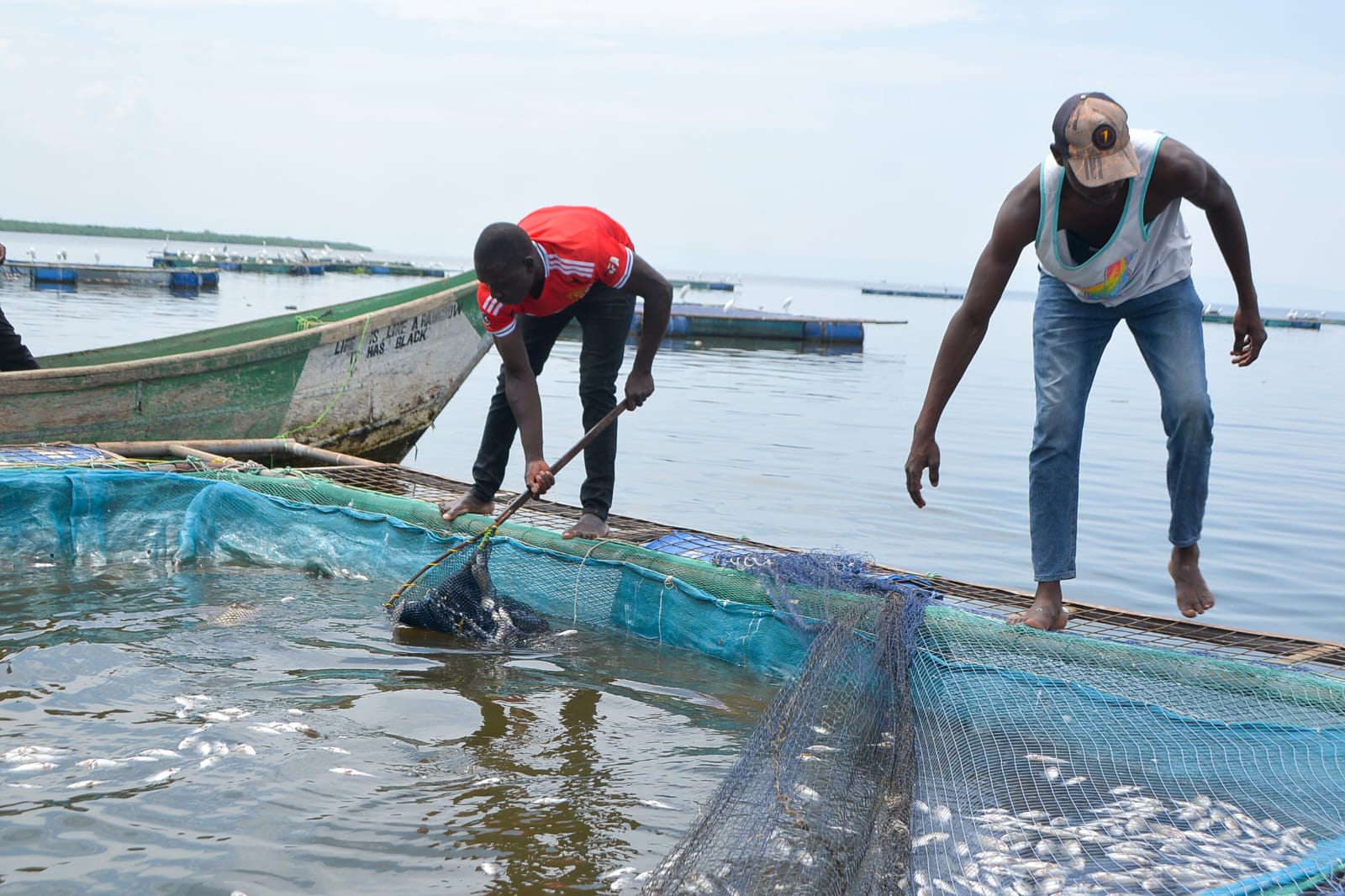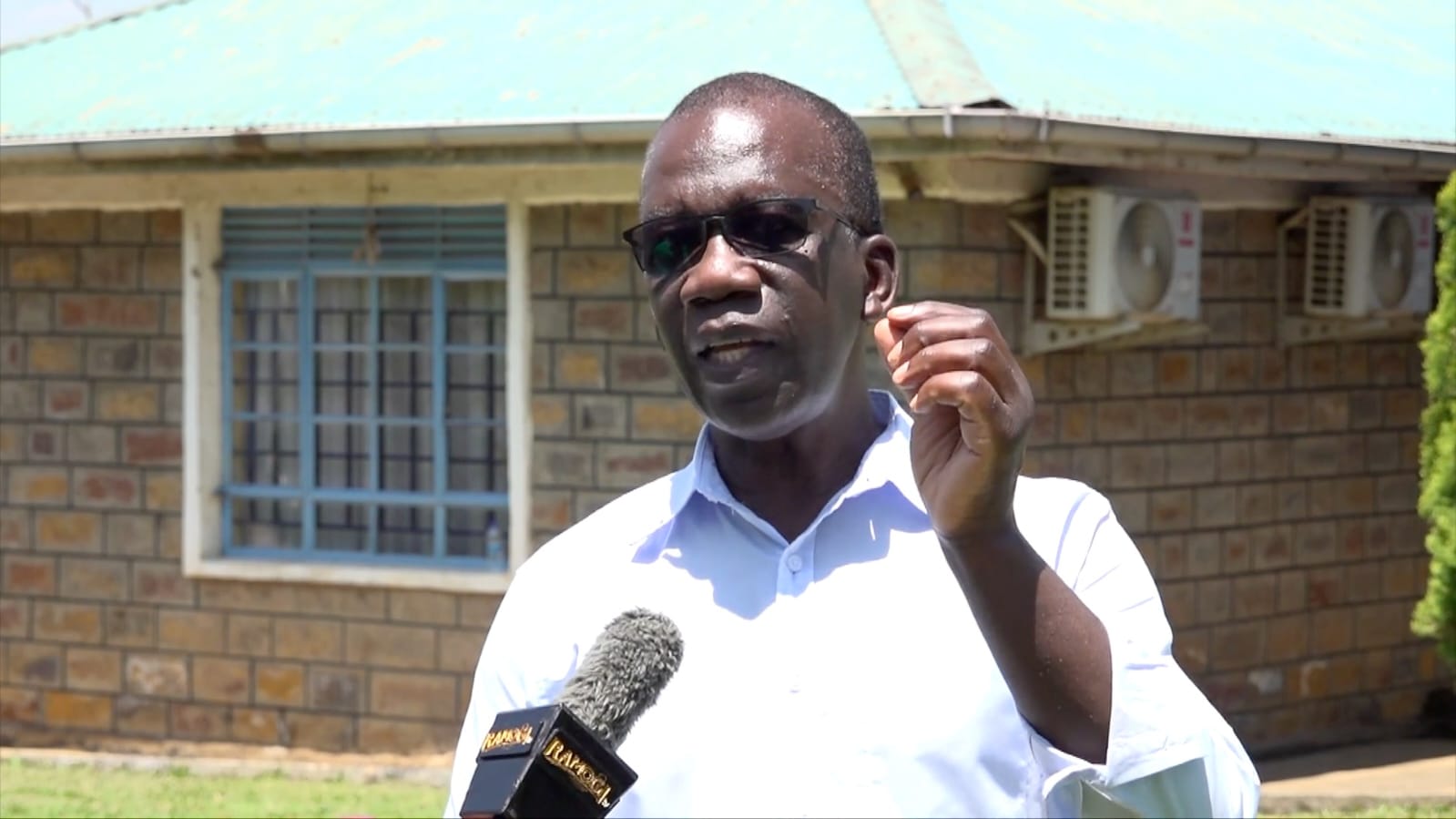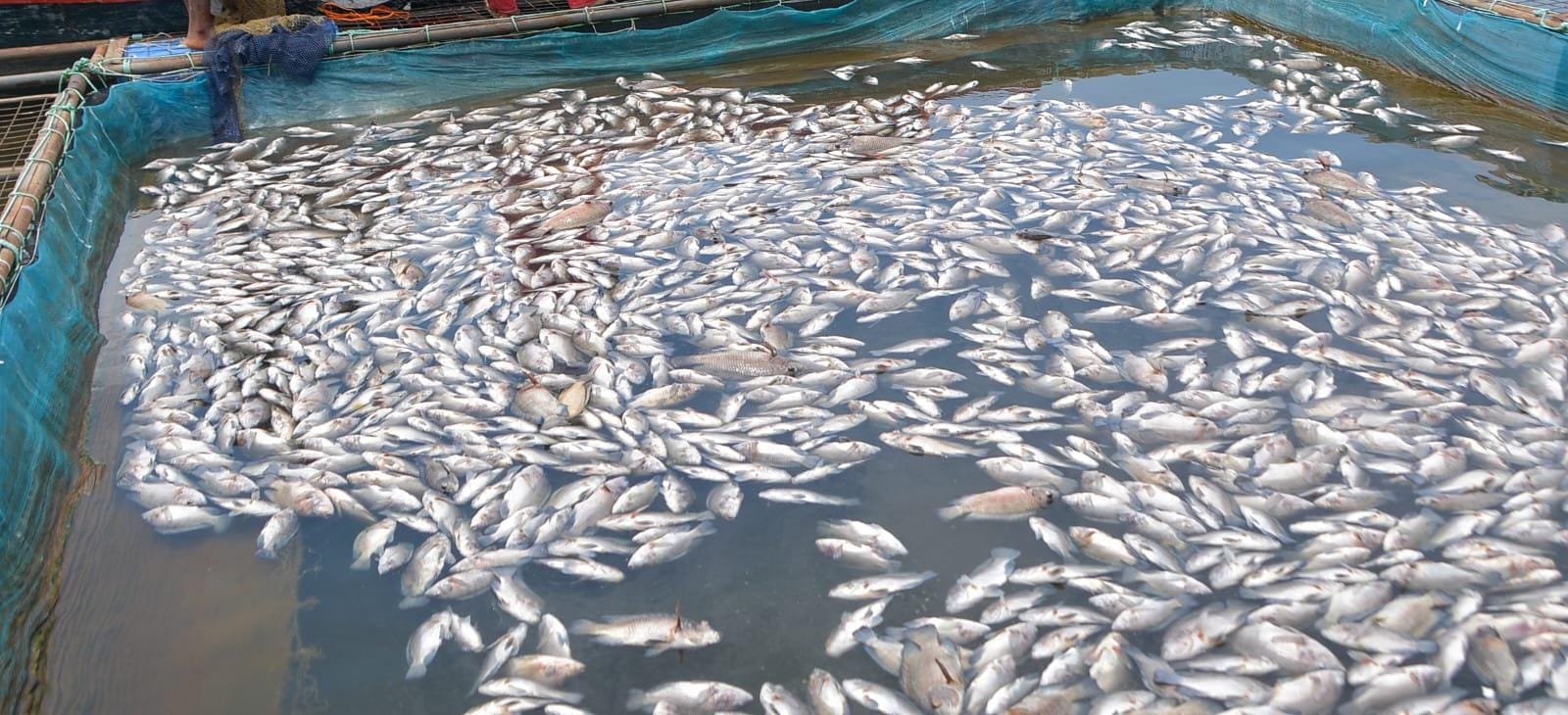

 Pete Ondeng, secretary, Lake Victoria Aquaculture Association /FAITH MATETE
Pete Ondeng, secretary, Lake Victoria Aquaculture Association /FAITH MATETE  Dead tilapia in Dunga Beach /FAITH MATETE
Dead tilapia in Dunga Beach /FAITH MATETE Fish farmers have sounded the alarm over yet another wave of mass fish deaths in Lake Victoria, a crisis that has repeatedly struck over the
past two years.
Lake Victoria Aquaculture
Association officials and scientists have linked the incidents to low oxygen levels, industrial effluent, and
poor waste management. But despite the recurring devastation, the LVA says
little has been done to address the underlying causes or provide farmers with a
predictable environment in which to operate.
At the heart of the problem,
according to the association, is what it terms “regulatory paralysis.”
Since December 2024, the aquaculture
sector has been running without a legal framework after the High Court
suspended the Fisheries Management and Development (Aquaculture) Regulations.
The suspension followed a petition by the LVA, which argued the rules were
flawed.
“A joint task force appointed by
Fisheries Cabinet Secretary Hassan Joho completed its work earlier this
year and submitted recommendations, with the CS promising to withdraw the
contested regulations and gazette new ones,” the association said in a
statement.
Nine months later, farmers are still
waiting.
“The continued fish deaths are a
symptom of deeper systemic failures,” said Ochieng’ Mbeo, chairman of the LVA board. “It is unacceptable that the government has done nothing to provide an
alternative framework. This complacency has left the aquaculture sector in
limbo, undermining food security, investments, and the livelihoods of thousands
of Kenyans.”
Pete Ondeng, the board secretary,
echoed the concerns, warning that aquaculture cannot thrive without clarity.
“Aquaculture is a vital pillar of
Kenya’s blue economy, but without a clear and enforceable regulatory framework,
the sector cannot grow. The government must urgently gazette the new
regulations, as promised, before more farmers are driven out of business,” he
said.
For farmers, the
repeated losses are crippling.
The association warned that unless
urgent measures are taken, Kenya risks reversing gains made in aquaculture
development and deterring private sector investment.
It reiterated its willingness to work with the government to fast-track inclusive, fair, and enforceable regulations that protect farmers while safeguarding Lake Victoria’s ecology and long-term sustainability.
















